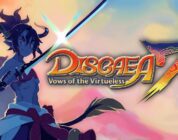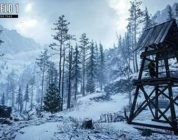Fifteen months ago, I beheld greatness. I’m going to say this again, just in case people don’t listen and understand: Neverwinter Nights is one of my favorite games…OF. ALL. TIME. In fact, I have the Diamond Edition DVD sitting on my desk about a foot and a half away from me just in case I feel the urge to delve deep into its perfect adventure. I’m not kidding around here, folks. Now I will grant you that Neverwinter, now under the umbrella of Perfect World, is not a remake of Neverwinter Nights, nor is it really connected to Neverwinter Nights at all except for taking place in the same fictional world and city. I can imagine how you would think that fact would abate my excitement. You can imagine how I laugh at you as I dance a jig on my chair.
Go ahead, imagine it. I’ll wait.
The focus this year was not on the main campaign, nor should it have been. The main campaign, while I’m sure it will be wonderful and engaging, is not the real reason that I will be losing my job and my friends to Neverwinter upon its release. No, the true power of Neverwinter will be in user-generated content through its Foundry dungeon creation toolkit. Built directly into the game’s main executable file, there’s no need to run a separate program to create new adventures. The basic concepts of the Foundry were similar to what I saw at E3 last year, but it seems to have been developed even further than before.
The Foundry is Neverwinter’s all-in-one adventure creation toolkit. From small dungeons to massive, sprawling quests, the Foundry will let you build stories that you, your friends, and players in Neverwinter’s online world will all be able to access and enjoy from within Neverwinter’s online world; yes, user-generated content will have full integration into the game’s main world. There is a normal menu access point for the Foundry “marketplace,” which lets you view and install the dungeons/adventures that others have uploaded, but you can also find these quests on job boards and with NPCs local to the quest areas for a more organic, natural experience. Beyond that, however, the “marketplace” allows you to subscribe to content creators, donate in-game currency to content creators for jobs well done, keep up with content creators as they publish notes and updates for current and upcoming adventures, and rate the adventures for the benefit of others.
The Foundry itself seems similar to what I saw last year. For novice dungeon masters, the Foundry allows you to quickly and easily build a functional adventure. Advanced creators, however, will spend days, if not weeks/months crafting and tuning their adventures. Dialogue trees can be built (sadly, skill checks are not yet part of the Foundry’s available dialogue options), default characters can be remodeled and renamed, and areas can be as detailed or generic as your imagination allows. The dialogue editor allows for a level of customization, freedom, and creativity in content creation that has my neurons firing with wild abandon. Through user-generated content, a player can reach the level 60 character limit without ever touching a single quest packaged with the game at launch.
Each piece of user-generated content has a single chest drop available to the creator. The creator is not capable of selecting what goes into this treasure chest specifically, since that would throw the persistent world off balance, but the quality of the gear available in the chest scales to the length and difficulty of the created content, so you can be sure that the game will reward you appropriately for your efforts.
The Foundry is capable of far more than I’ve given it credit for here, but I find myself absolutely at a loss for words when trying to find a starting point. The beta is tentatively due by the end of 2012, so be sure to keep an eye out here for some walkthroughs on content creation. There will be many, and they will provide a great insight into the flexibility and scope of Neverwinter. Best of show for me, hands down, but that’s hardly a surprise.




